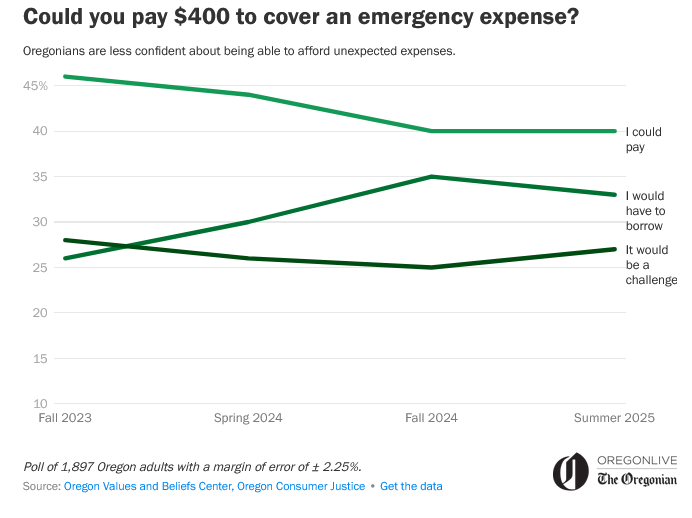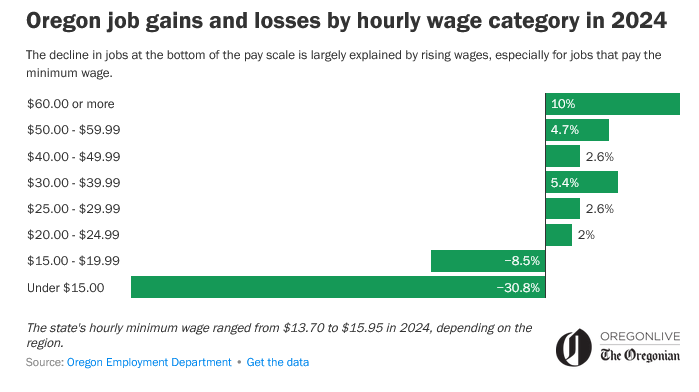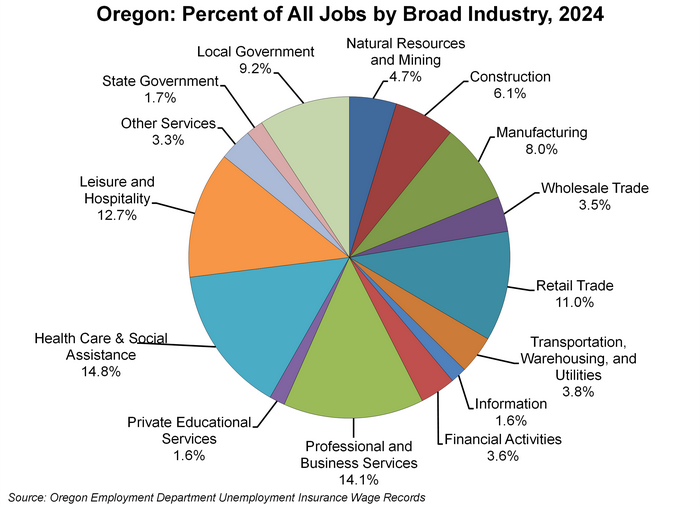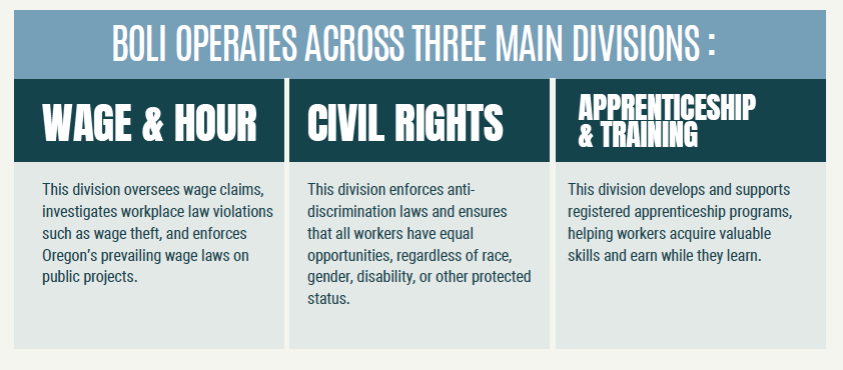| In a season of drastic governmental cutbacks, one Oregon agency has found some relief.
The Bureau of Labor & Industries (BOLI), which, according to the state labor commissioner, has suffered from cuts and underinvestment for decades, got a 30% bump in the latest state budget. State lawmakers allocated an additional $18.7 million to the agency’s 2025-27 budget for a total of more than $80 million.
The wage and hour laws BOLI enforces include minimum wage and overtime, child labor, sick leave, rest and meal periods, making allowances for nursing moms to breastfeed or pump breast milk, and more. Since the agency created a simplified process for submitting claims online, those claims have gone up by more than 200%.
In the 1980s, the agency had one employee for every 5,750 Oregon workers; by 2024, that ratio had fallen to one for every 20,000. In the five-year period that wage claims increased by more than 200%, staffing remained flat, leaving thousands of Oregonians without timely recourse when wages were stolen.
BOLI plans to use the money to tackle a backlog of 7,500 civil rights and wage theft cases, and take other steps to improve efficiency. The agency says the change will allow it to clear a backlog of cases that forced it to stop investigating wage theft claims for workers making over $52,710 annually or $25.34 per hour back in October 2024.
The agency plans to add staff around the organization — intake specialists, mediators, case investigators, customer service professionals — and replace its outdated and crash-prone case management system.
On October 1, the Bureau announced that it is lifting the income threshold on wage claims, restoring investigations for all Oregonians who believe they have not been paid what they are owed. |








